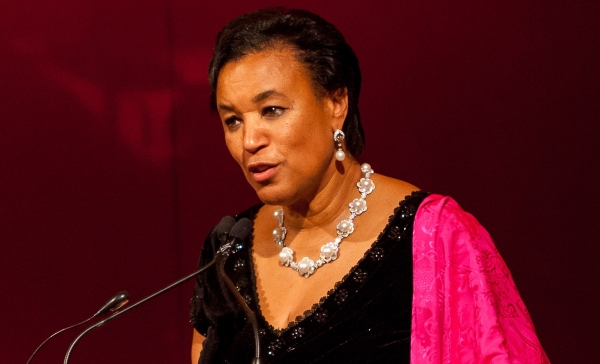Heads of government will be voting on the Commonwealth’s sixth Secretary-General in November

The November Commonwealth Heads of Government Meeting (CHOGM) in Malta will see delegates voting on the next Secretary-General, as incumbent Kamalesh Sharma reaches the end of his second term.
The prospect of a new leader has become a lively talking point for Commonwealth enthusiasts, particularly with regard to the need for a new Secretary-General to keep the Commonwealth relevant and influential in an ever-changing world. As regionally based groups, such as the European Union and the African Union, now have such powerful voices on the world stage, Commonwealth member countries will look to the next Secretary-General to continue Sharma’s good work in helping the organisation move with the times and promote members’ interests in the international arena.
The question of which region the new post holder should be drawn from is, perhaps, one of the most critical issues for heads of government to consider. It is this subject that has galvanised Caribbean countries into action, as it is now 25 years since a Caribbean national held the ‘top job’, in the person of the charismatic Sonny Ramphal. Consequently, three of the four initial 2015 candidates were fielded by Caribbean countries, though one – Trinidad and Tobago’s nominee – dropped out in September. At one point, Caricom considered narrowing the field and uniting behind one Caribbean individual, but the emergence of more than one strong candidate from the region made this too difficult.
Baroness Patricia Scotland of Asthal, the Dominican-born former British Attorney-General has been nominated by Dominica. Scotland moved to England at the age of two, going on to study law and become Britain’s first black female barrister. She has held a number of ministerial positions for the UK government as well as a series of posts on behalf of the Caribbean, such as representative of Dominica on the council of the Commonwealth Ex-Servicemen and Women’s League and patron of the Caribbean Science Foundation.
She puts forward her vision for the Commonwealth on her website (www.patriciascotland.com). It begins: “I have been fortunate enough to have been able to do a lot in my life – at home, at work and for the community. The foundation of everything has always been my desire to do something, rather than ‘be somebody’. The Commonwealth needs a Secretary-General who is in it not for the title, but to do the job. I believe that, building on its long and distinguished history, the Commonwealth has unique potential to play a role of fundamental importance for its member states as we create our shared future in an uncertain world. I hope to play a role in realising that potential.”
Sir Ronald Sanders has been nominated by Antigua and Barbuda. He was high commissioner to the United Kingdom for Antigua and Barbuda, and ambassador to the World Trade Organization in the 1980s and 90s. In 2010 Sanders was appointed to a ten-member Eminent Persons Group to report back to the Commonwealth Heads of Government to recommend options for reform to sharpen the impact of the Commonwealth.
He is currently a senior research fellow at the Institute of Commonwealth Studies at the University of London in the UK. Gaston Browne, Prime Minister of Antigua and Barbuda, says: “The Government of Antigua and Barbuda has nominated Sir Ronald Sanders as the next Secretary-General of the Commonwealth and is pleased to commend him to the association of Commonwealth Nations. He is a diplomat and a scholar, a man of vision and of practicality, a man of ideals and of ideas – and a man of proven commitment to the Commonwealth.”
Mmasekgoa Masire-Mwamba has been nominated by Botswana. She has previously been Deputy Secretary-General of the Commonwealth, having served two terms under Kamalesh Sharma. Her past roles have included that of CEO at the Botswana Export Development and Investment Authority, and assistant engineer at the Botswana Telecommunications Corporation. Masire-Mwamba has a bachelor’s degree in electronics and physics from the University of London and studied law at the University of South Africa, as well as having a master’s degree in business administration from the University of Pittsburgh.
Botswana’s Weekend Post said of her candidacy: “We do not support Masire-Mwamba merely because she is the daughter of the soil but also because of the capabilities she poses as a professional and her contribution to the development of Botswana and Africa as whole.”
A very late entry to the contest is Bernard Membe, Tanzania’s Minister for Foreign Affairs and International Co-operation, who threw his hat into the ring just weeks before the start of CHOGM. Membe is currently the chair of the Commonwealth Ministerial Action Group. A member of Tanzania’s parliament since 2000, he has been Foreign Minister since 2007 and before that Deputy Minister of Energy and Minerals, and Deputy Minister of Home Affairs. He studied political science at the University of Dar es Salaam and international relations at John Hopkins University in the USA.
A fifth candidate, Dr Bhoendradatt ‘Bhoe’ Tewarie, former Minister for Planning in Trinidad and Tobago, withdrew in September.
The election will be held in a restricted session at CHOGM, in which only heads of government, or their ministerial representatives, are present. As Chair of CHOGM, Joseph Muscat will be responsible for conducting the election and negotiations surrounding it, using a secret straw poll that can go to more than one round.
Commonwealth watchers will be eagerly awaiting the result, which will herald the start of a new era for the 53-member organisation.





